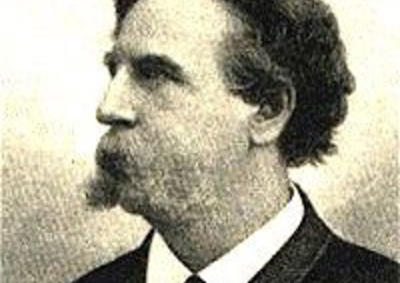Richard Storrs Willis (1819–1900) was a prominent American composer, music critic, and music historian, known for his contributions to sacred and Christmas music. He played an influential role in shaping 19th-century American music, blending traditional European techniques with American sensibilities. His most famous composition, the Christmas hymn “It Came Upon the Midnight Clear,” remains a beloved part of holiday celebrations.
Early Life and Education
Richard Storrs Willis was born on February 10, 1819, in Boston, Massachusetts. He was the younger brother of Nathaniel Parker Willis, a renowned author and editor, whose literary circles exposed Richard to a wide variety of artistic and intellectual influences. He showed a strong affinity for music early in life, which led him to pursue formal studies.
Willis studied at Yale University, graduating in 1841. While at Yale, he was a member of the university’s first college choir, further developing his musical talents. He later traveled to Germany, where he studied under some of the leading European composers of the time, including Felix Mendelssohn. This European education helped refine Willis’ compositional style, giving it a depth that combined both classical European and emerging American elements.
Musical Career
After returning to the United States, Willis established himself as a composer and music critic. He began his career in journalism as a music editor for several periodicals, including The Musical Times and The New York Tribune. Through his writings, Willis became a significant voice in American music criticism, promoting the works of European composers while encouraging the development of American music traditions.
Willis was also a prolific composer. While he wrote symphonies, operas, and instrumental pieces, he is most remembered for his sacred music, particularly hymns. His hymn “It Came Upon the Midnight Clear” (1849), which paired his music with lyrics written by the Unitarian minister Edmund Sears, became one of the most widely sung Christmas carols in the English-speaking world.
“It Came Upon the Midnight Clear”
Composed during a time of significant political and social unrest in the United States, “It Came Upon the Midnight Clear” resonated with themes of peace and hope. The carol reflects both a sense of yearning for a better world and a deep spiritual reflection on the meaning of Christmas. The melody, gentle yet powerful, has been set to different lyrics over the years, but Willis’ original version remains a Christmas classic.
The carol’s widespread popularity brought Willis considerable fame, and its message of peace and goodwill has made it an enduring favorite during the holiday season.
Other Contributions to American Music
In addition to his work in sacred music, Willis made significant contributions to American music history as a writer and editor. His works on music theory, history, and composition were influential in shaping the music education of his time. He published several essays and articles promoting both classical and popular music, bridging the gap between these two worlds.
Willis was also one of the earliest advocates for introducing more structured music education into American schools. He believed that music was not just an art form but a vital part of cultural and intellectual development. Through his writings and lectures, Willis championed the idea that music should be accessible to all, a forward-thinking perspective for his era.
Later Life and Legacy
Richard Storrs Willis continued to compose, write, and advocate for music throughout his life. Although his fame declined after his death on May 7, 1900, his contributions to American music and his advocacy for music education have had a lasting impact. His role in bringing a distinctly American voice to the world of hymnody and his efforts to promote music education remain an important part of his legacy.
“It Came Upon the Midnight Clear” continues to be his most enduring contribution, ensuring that his name is forever linked with one of the most iconic pieces of Christmas music in American culture.
Conclusion
Richard Storrs Willis may not be as widely recognized as other American composers, but his impact on sacred music, Christmas traditions, and music education in the United States is undeniable. His compositions, particularly the timeless “It Came Upon the Midnight Clear,” continue to touch the hearts of millions, embodying the peaceful and hopeful spirit of the holiday season. Through his writings, compositions, and educational efforts, Willis left an indelible mark on the musical landscape of 19th-century America.


Comments are closed